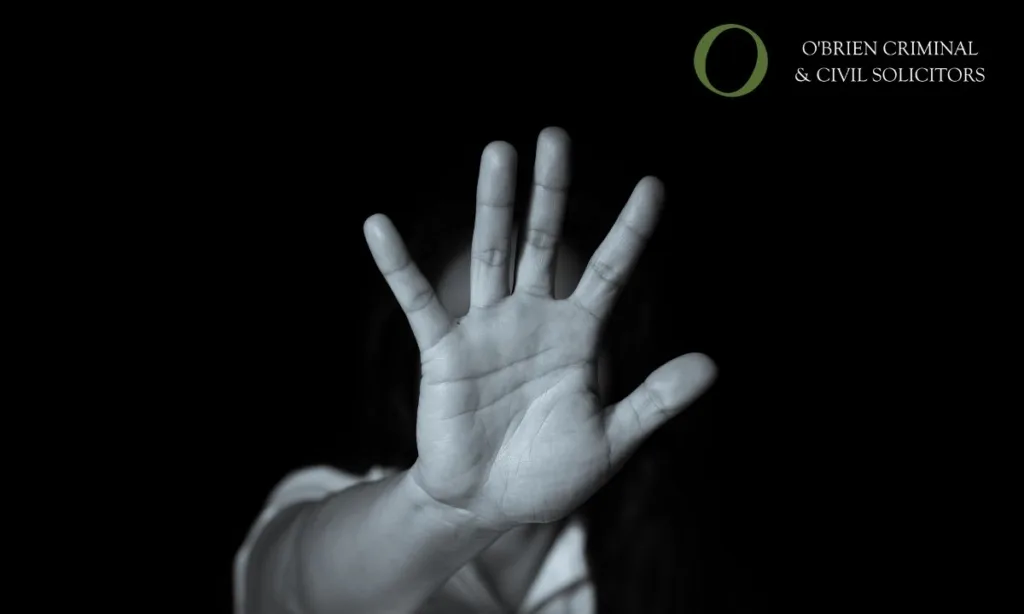Proving self-defence in domestic violence cases is both a legal and personal challenge, requiring careful evidence and strong advocacy. In a recent win for justice, O’Brien Criminal & Civil Solicitors successfully defended for our client, who was wrongly charged under Section 61 of the Crimes Act 1900 (NSW).
Our lawyers demonstrated she acted in lawful self-defence during a family altercation.
Understanding Self-Defence in Domestic Violence
Self-defence is recognised under Section 418 of the Crimes Act 1900 (NSW). For a claim to succeed, two core elements must be established:
-
The accused genuinely believed their actions were necessary to protect themselves (or another); and
-
The actions taken were a reasonable response to the circumstances as perceived at the time.
In our client’s situation, she attempted to leave a hostile situation but was attacked by her in-laws. Despite being the victim, she was arrested and charged, a not-uncommon scenario where victims become accused due to misinterpretation of events by police or others.
Read our other successful Criminal Case Studies.
Evidence That Supports Self-Defence
To prove self-defence in court, compelling and relevant evidence is crucial:
-
Personal testimony: Clear accounts of the incident, perceived threats, and attempts to retreat.
-
Witness statements: Statements from bystanders or others present can corroborate the account.
-
Physical evidence: Medical reports, photographs of injuries, or evidence of damage can support claims.
-
Police reports and digital evidence: These can highlight inconsistencies or failures in initial investigations, as occurred during our client’s case.
Highlighting flaws in police investigations or demonstrating overlooked evidence (like prior threats or physical harm suffered by the defendant) can be decisive. In our client’s case, cross-examination exposed investigative oversights, ultimately persuading the magistrate that her actions were justified.

Key Legal Principles in NSW
-
Once self-defence is raised with some evidence, the prosecution must disprove it beyond reasonable doubt.
-
The response must be proportionate to the perceived threat; excessive force will undermine the defence.
-
Self-defence can apply in protecting oneself, another person, or even property, but must always be reasonable to the circumstances.
-
Past experiences with violence, physical differences, and immediate danger are all considered by the court.
Why Having an Experienced Defence Lawyer for Self-Defence in Domestic Violence
As our client’s case shows, being charged with assault in domestic settings can be overwhelming and unfair. Our skilled criminal lawyers will not only challenge the prosecution’s version but ensure all exonerating evidence is brought forward and procedural errors are scrutinised.
Need a Lawyer for Assault Charges or Self-Defence Claims?
If you or someone you know has been charged with assault but was acting in self-defence, you don’t have to face the system alone.
At O’Brien Criminal & Civil Solicitors, we know how to present your case in the best possible light and achieve outcomes that protect your future.
Contact us today for a confidential consultation and take the first step towards resolution.



*We always change details in our Case Studies to protect client confidentiality.

- Nicole Byrne
- Nicole Byrne
- Nicole Byrne
- Nicole Byrne
- Nicole Byrne
- Nicole Byrne
- Nicole Byrne
- Nicole Byrne
- Nicole Byrne
- Nicole Byrne
- Nicole Byrne
- Nicole Byrne
- Nicole Byrne
- Nicole Byrne
- Nicole Byrne
- Nicole Byrne
- Nicole Byrne
- Nicole Byrne
- Nicole Byrne
- Nicole Byrne
- Nicole Byrne
- Nicole Byrne
- Nicole Byrne
- Nicole Byrne
- Nicole Byrne




